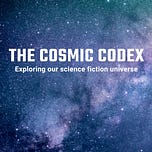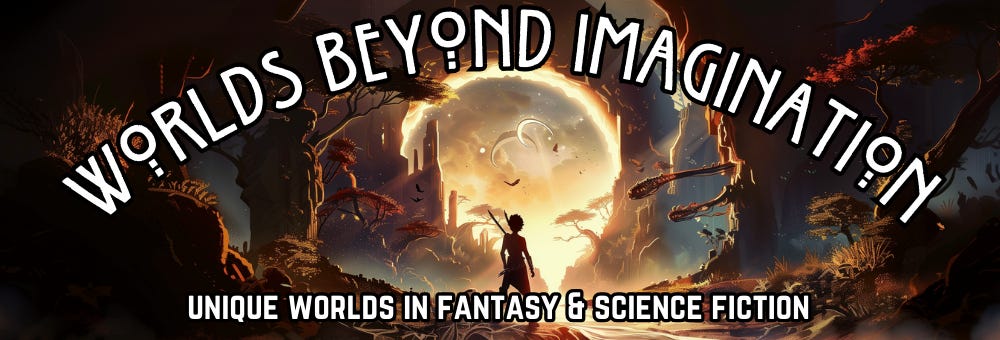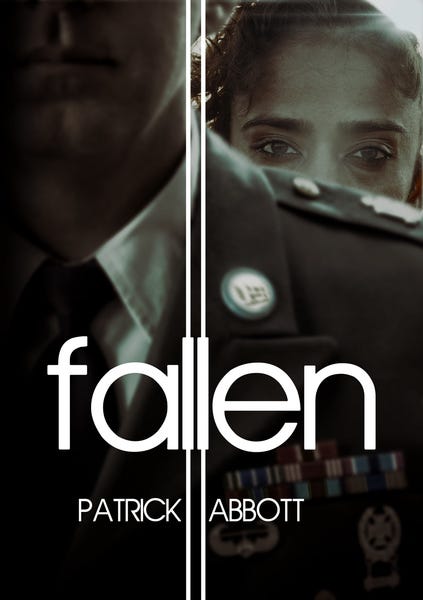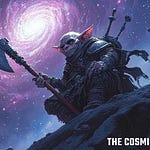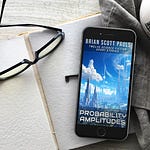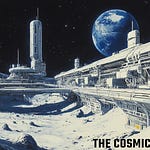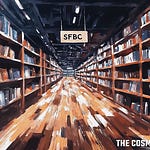My novelette, An Illicit Mercy, is part of a new promotion in August: Worlds Beyond Imagination.
Nearly 50 science fiction and fantasy books, available at no cost.
Get your FREE preview of Fallen!
This is a sneak-peek of the first book of a two-part series. The sequel, Risen, is coming soon.
Brendan Murphy nearly died fighting for his country.
Now he’s trying to stop a war.
Five years ago, alien ship appeared in low orbit all around the world and stayed there, waiting. A highly advanced alien race known as the Sabia lingered with little contact with humanity, and the worlds’ governments have been eager for answers – and access- for years.
When combat veteran Brendan Murphy is wounded stopping an attack on a Sabia diplomat, he finds himself whisked aboard one of their ships and given medical aid. This rare opportunity finds him walking a tenuous line between burgeoning friendships and secret agenda that will test his loyalties and sanity in ways he can’t begin to imagine.
“[Aristotle] was once asked what a friend is; and his answer was, ‘One soul abiding in two bodies.’”
—Diogenes Laërtius in The Lives and Opinions of Eminent Philosophers
Born in Brooklyn in 1928, Robert Sheckley served with the U.S. Army in Korea starting in 1946. Leaving the military two years later, he began writing science fiction in 1951, gaining a reputation for both his humor and his satire.
His 1953 short story “Beside Still Waters,” now in the public domain due to non-renewal of copyright, contains little of either of these elements, but a great deal of pathos. Still, it embodies science fiction historian James Gunn's description of Sheckley's writing:
“…in Sheckley’s hands the standard notions of space, aliens, future artifacts, cities, overpopulation, entertainment, culture, survival, love, death and war were transmuted into something that glittered.”1
And based on this story, I would add “artificial intelligence, free will, and friendship.”
Beside Still Waters2
by Robert Sheckley
Mark Rogers was a prospector, and he went to the asteroid belt looking for radioactives and rare metals. He searched for years, never finding much, hopping from fragment to fragment. After a time he settled on a slab of rock half a mile thick.
Rogers had been born old, and he didn't age much past a point. His face was white with the pallor of space, and his hands shook a little. He called his slab of rock Martha, after no girl he had ever known.
He made a little strike, enough to equip Martha with an air pump and a shack, a few tons of dirt and some water tanks, and a robot. Then he settled back and watched the stars.
The robot he bought was a standard-model all-around worker, with built-in memory and a thirty-word vocabulary. Mark added to that, bit by bit. He was something of a tinkerer, and he enjoyed adapting his environment to himself.
At first, all the robot could say was "Yes, sir," and "No, sir." He could state simple problems: "The air pump is laboring, sir." "The corn is budding, sir." He could perform a satisfactory salutation: "Good morning, sir."
Mark changed that. He eliminated the "sirs" from the robot's vocabulary; equality was the rule on Mark's hunk of rock. Then he dubbed the robot Charles, after a father he had never known.
As the years passed, the air pump began to labor a little as it converted the oxygen in the planetoid's rock into a breathable atmosphere. The air seeped into space, and the pump worked a little harder, supplying more.
The crops continued to grow on the tamed black dirt of the planetoid. Looking up, Mark could see the sheer blackness of the river of space, the floating points of the stars. Around him, under him, overhead, masses of rock drifted, and sometimes the starlight glinted from their black sides. Occasionally, Mark caught a glimpse of Mars or Jupiter. Once he thought he saw Earth.
Mark began to tape new responses into Charles. He added simple responses to cue words. When he said, "How does it look?" Charles would answer, "Oh, pretty good, I guess."
At first the answers were what Mark had been answering himself, in the long dialogue held over the years. But, slowly, he began to build a new personality into Charles.
Mark had always been suspicious and scornful of women. But for some reason he didn't tape the same suspicion into Charles. Charles' outlook was quite different.
"What do you think of girls?" Mark would ask, sitting on a packing case outside the shack, after the chores were done.
"Oh, I don't know. You have to find the right one." The robot would reply dutifully, repeating what had been put on its tape.
"I never saw a good one yet," Mark would say.
"Well, that's not fair. Perhaps you didn't look long enough. There's a girl in the world for every man."
"You're a romantic!" Mark would say scornfully. The robot would pause--a built-in pause--and chuckle a carefully constructed chuckle.
"I dreamed of a girl named Martha once," Charles would say. "Maybe if I would have looked, I would have found her."
And then it would be bedtime. Or perhaps Mark would want more conversation. "What do you think of girls?" he would ask again, and the discussion would follow its same course.
Charles grew old. His limbs lost their flexibility, and some of his wiring started to corrode. Mark would spend hours keeping the robot in repair.
"You're getting rusty," he would cackle.
"You're not so young yourself," Charles would reply. He had an answer for almost everything. Nothing involved, but an answer.
It was always night on Martha, but Mark broke up his time into mornings, afternoons and evenings. Their life followed a simple routine. Breakfast, from vegetables and Mark's canned store. Then the robot would work in the fields, and the plants grew used to his touch. Mark would repair the pump, check the water supply, and straighten up the immaculate shack. Lunch, and the robot's chores were usually finished.
The two would sit on the packing case and watch the stars. They would talk until supper, and sometimes late into the endless night.
In time, Mark built more complicated conversations into Charles. He couldn't give the robot free choice, of course, but he managed a pretty close approximation of it. Slowly, Charles' personality emerged. But it was strikingly different from Mark's.
Where Mark was querulous, Charles was calm. Mark was sardonic, Charles was naive. Mark was a cynic, Charles was an idealist. Mark was often sad; Charles was forever content.
And in time, Mark forgot he had built the answers into Charles. He accepted the robot as a friend, of about his own age. A friend of long years' standing.
"The thing I don't understand," Mark would say, "is why a man like you wants to live here. I mean, it's all right for me. No one cares about me, and I never gave much of a damn about anyone. But why you?"
"Here I have a whole world," Charles would reply, "where on Earth I had to share with billions. I have the stars, bigger and brighter than on Earth. I have all space around me, close, like still waters. And I have you, Mark."
"Now, don't go getting sentimental on me--"
"I'm not. Friendship counts. Love was lost long ago, Mark. The love of a girl named Martha, whom neither of us ever met. And that's a pity. But friendship remains, and the eternal night."
"You're a bloody poet," Mark would say, half admiringly. "A poor poet."
Time passed unnoticed by the stars, and the air pump hissed and clanked and leaked. Mark was fixing it constantly, but the air of Martha became increasingly rare. Although Charles labored in the fields, the crops, deprived of sufficient air, died.Mark was tired now, and barely able to crawl around, even without the grip of gravity. He stayed in his bunk most of the time. Charles fed him as best he could, moving on rusty, creaking limbs.
"What do you think of girls?"
"I never saw a good one yet."
"Well, that's not fair."
Mark was too tired to see the end coming, and Charles wasn't interested. But the end was on its way. The air pump threatened to give out momentarily. There hadn't been any food for days.
"But why you?" Gasping in the escaping air. Strangling.
"Here I have a whole world--"
"Don't get sentimental--"
"And the love of a girl named Martha."
From his bunk Mark saw the stars for the last time. Big, bigger than ever, endlessly floating in the still waters of space.
"The stars ..." Mark said.
"Yes?"
"The sun?"
"--shall shine as now."
"A bloody poet."
"A poor poet."
"And girls?"
"I dreamed of a girl named Martha once. Maybe if--"
"What do you think of girls? And stars? And Earth?" And it was bedtime, this time forever.
Charles stood beside the body of his friend. He felt for a pulse once, and allowed the withered hand to fall. He walked to a corner of the shack and turned off the tired air pump.
The tape that Mark had prepared had a few cracked inches left to run. "I hope he finds his Martha," the robot croaked, and then the tape broke.
His rusted limbs would not bend, and he stood frozen, staring back at the naked stars. Then he bowed his head.
"The Lord is my shepherd," Charles said. "I shall not want. He maketh me to lie down in green pastures; he leadeth me ..."
Club Codex is reading and discussing The Hieros Gamos of Sam and An Smith through the end of August.
Follow along with my thoughts on this novel and contribute your own in the following thread:
Click here for more details about Club Codex in 2024. Please join us!
Questions or comments? Please share your thoughts!
James Gunn, The Road to Science Fiction, Borealis, 1979, p. 237
Robert Sheckley, “Beside Still Waters,” Amazing Stories, Ziff-Davis Publishing Company, October-November 1953


